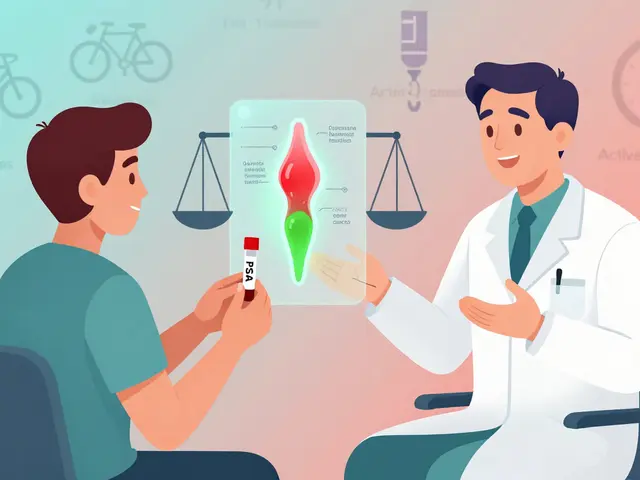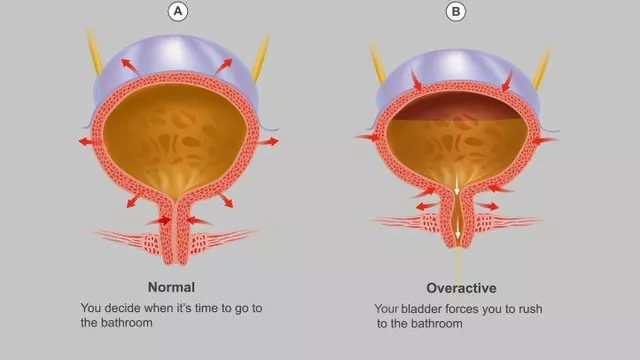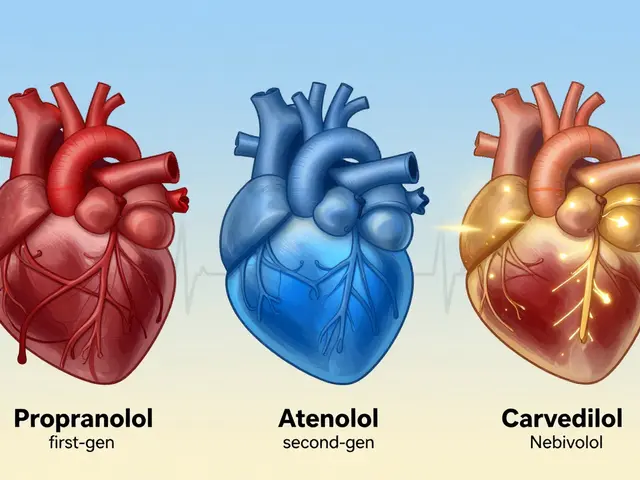PSA Screening Controversies: Why Shared Decision-Making Matters for Prostate Cancer
February 1 2026Hormone therapy: what it is and when it helps
Hormone therapy means giving or replacing hormones your body makes less of. People use it for menopause (HRT), low testosterone, thyroid problems, and some fertility or chronic conditions. The idea is simple: restore balance so symptoms ease and daily life improves.
If you’ve been feeling foggy, exhausted, cold all the time, or having bad hot flashes, hormone issues could be the cause. A single blood test often points to the problem, but symptoms and personal health history matter too.
Common types and what to expect
Menopausal HRT: Estrogen alone or estrogen plus progesterone helps hot flashes, night sweats, and vaginal dryness. It can also protect bone health. Benefits usually show in weeks, but talk to your doctor about risks like clotting or breast changes.
Testosterone replacement: Used for men (and sometimes women) with low testosterone. It can boost energy, sex drive, and muscle mass. Monitoring is key — too much can cause acne, mood swings, or red flags on blood tests.
Thyroid hormones: If your thyroid is underactive, levothyroxine or desiccated thyroid products replace missing hormones. Dosing needs careful tuning. Some people prefer desiccated thyroid; others do better on synthetic levothyroxine. Work with your clinician to find the right choice and dose.
How to choose and stay safe
Start with a clear diagnosis. Don’t self-prescribe based on internet posts. Ask for the specific blood tests (TSH, free T4, estradiol, testosterone, or others your doctor recommends). Get a treatment plan that includes starting dose, target levels, and follow-up tests.
Watch for side effects and report them early. Regular check-ins (usually every 6–12 weeks at first) keep dosing on track. If you’re over 60, smoke, or have a history of blood clots, cancer, or heart disease, discuss alternative approaches and extra monitoring.
Thinking of buying hormones online? Use only certified pharmacies and a valid prescription. Fake or incorrect dosing can be dangerous. If a site skips prescriptions or sells unusually cheap products, that’s a red flag.
Practical tip: keep a symptom diary for 2–4 weeks before starting treatment. Note sleep, mood, energy, hot flashes, weight, and libido. That makes it easier to see if therapy is working and helps your clinician fine-tune treatment.
Hormone therapy can change quality of life for the better, but it’s not one-size-fits-all. Ask clear questions: What are the realistic benefits? What are short- and long-term risks? How often will I be tested? With good monitoring and a clinician who listens, hormone therapy can be safe and effective.
 27 May
27 May
Premarin: Benefits, Risks, and Real-Life Guide for Hormone Therapy
Premarin is one of the most prescribed medications for women dealing with menopause symptoms. This article covers what Premarin is, how it works, its risks and benefits, and tips for managing side effects. You'll also learn facts rarely discussed and see whether it's the right fit for you or someone you know. Get real advice and current data for everyday women making big health decisions.
Read More...




